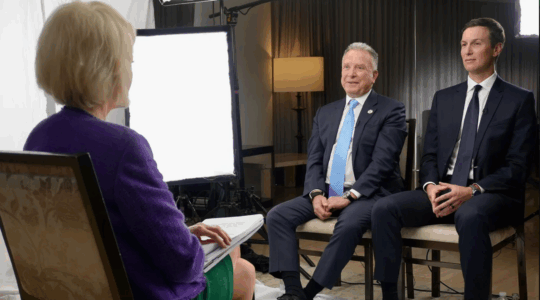JERUSALEM (JTA) — A prison parole board granted former Israeli Prime Minister Ehud Olmert early release from prison after serving a year and four months behind bars.
Olmert is about two-thirds through a 27-month prison sentence for corruption. He is scheduled to be released on Sunday, though the prosecutor could ask for a delay.
Earlier this week, Olmert returned to prison from Tel Hashomer hospital, where he had been admitted a week earlier due to chest pains.
Upon his release, Olmert’s attorney told Ynet that he would volunteer at two Israel food recovery NGOs, Ezer Lemarpe and Leket. The volunteer work is not a condition of his release, though Olmert will be required to see the Prisoner Rehabilitation Authority twice a month. No other restrictions have been imposed.
Olmert is currently under investigation for the possible leak of classified information after an autobiography he has been writing in prison was found to touch on sensitive security issues. Last month, one of his attorneys was caught leaving the prison with a chapter that discussed a top secret security-related incident that the military censor has banned in the past for publication.
Police searched the offices of the Yediot Books publishing house and the home of Yehuda Yaari, who is editing Olmert’s memoirs on behalf of the publisher, over the incident.
In March, President Reuven Rivlin rejected a pardon request for Olmert.
Olmert was the first Israeli prime minister to serve time in prison and be sentenced to jail. He resigned his post in September 2008 after police investigators recommended that he be indicted in multiple corruption scandals.
Olmert is serving his prison sentence for receiving bribes in the Holyland affair in what has been called the largest corruption scandal in Israel. Holyland involved the payment of bribes to government officials by the developers of a luxury high-rise apartment complex in Jerusalem.
Olmert also was convicted for accepting cash-filled envelopes from an American-Jewish businessman, Morris Talansky, and using it for personal and not political expenses.
JTA has documented Jewish history in real-time for over a century. Keep our journalism strong by joining us in supporting independent, award-winning reporting.





